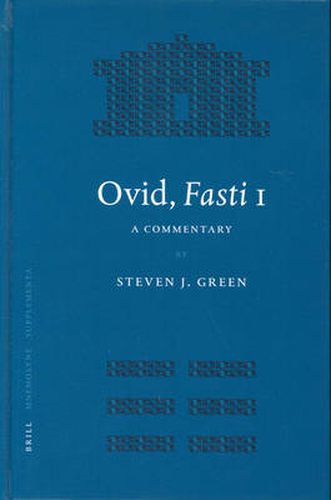Readings Newsletter
Become a Readings Member to make your shopping experience even easier.
Sign in or sign up for free!
You’re not far away from qualifying for FREE standard shipping within Australia
You’ve qualified for FREE standard shipping within Australia
The cart is loading…






This commentary provides a detailed analysis of the first book of Ovid’s Fasti, a complex poem which takes as its central framework the Roman calendar in the late Augustan/early Tiberian period and purports to deal with its religious festivals and their origins. Book 1 covers the month of January, and has proven to be particularly challenging to readers in light of the apparent revision/reworking of the text undertaken by the poet whilst in exile. This commentary - the most extensive yet on any single book of the poem - locates the text of Book 1 firmly in its literary, historical and socio-political contexts and seeks both to incorporate and build on the recent scholarship on the poem. In light of the special nature of Book 1, the commentary is prefaced by two introductory sections, the second of which tackles head-on the problems (and dynamics) of post-exilic reworking of the text.
$9.00 standard shipping within Australia
FREE standard shipping within Australia for orders over $100.00
Express & International shipping calculated at checkout
This commentary provides a detailed analysis of the first book of Ovid’s Fasti, a complex poem which takes as its central framework the Roman calendar in the late Augustan/early Tiberian period and purports to deal with its religious festivals and their origins. Book 1 covers the month of January, and has proven to be particularly challenging to readers in light of the apparent revision/reworking of the text undertaken by the poet whilst in exile. This commentary - the most extensive yet on any single book of the poem - locates the text of Book 1 firmly in its literary, historical and socio-political contexts and seeks both to incorporate and build on the recent scholarship on the poem. In light of the special nature of Book 1, the commentary is prefaced by two introductory sections, the second of which tackles head-on the problems (and dynamics) of post-exilic reworking of the text.